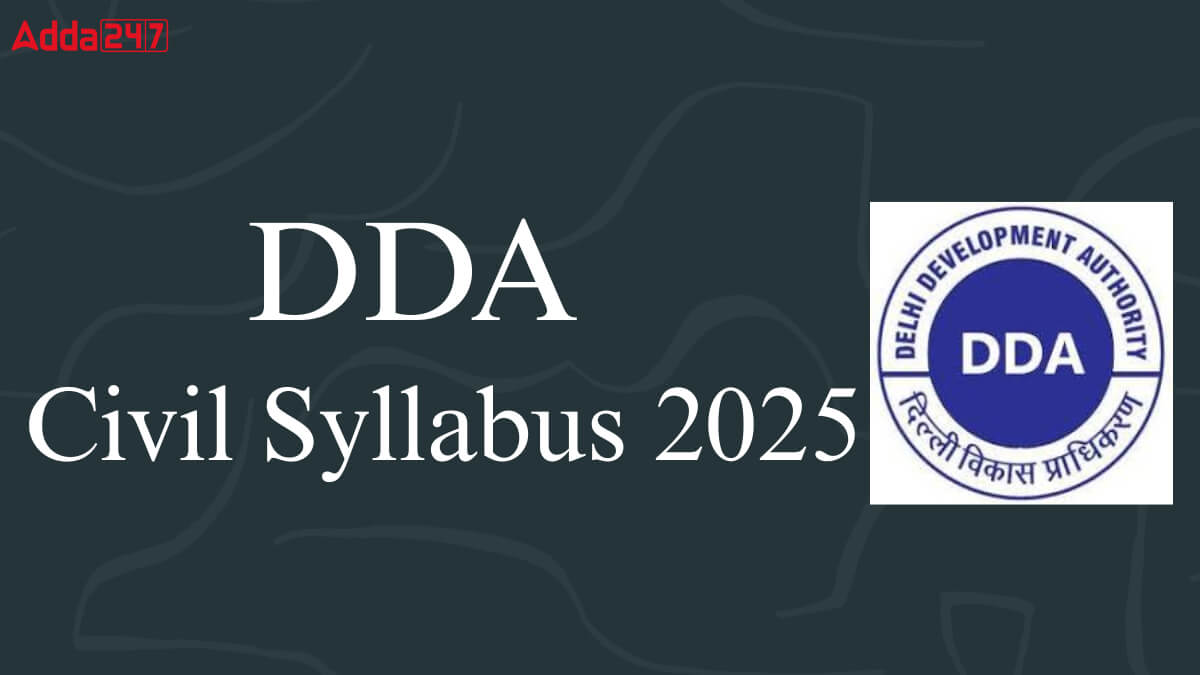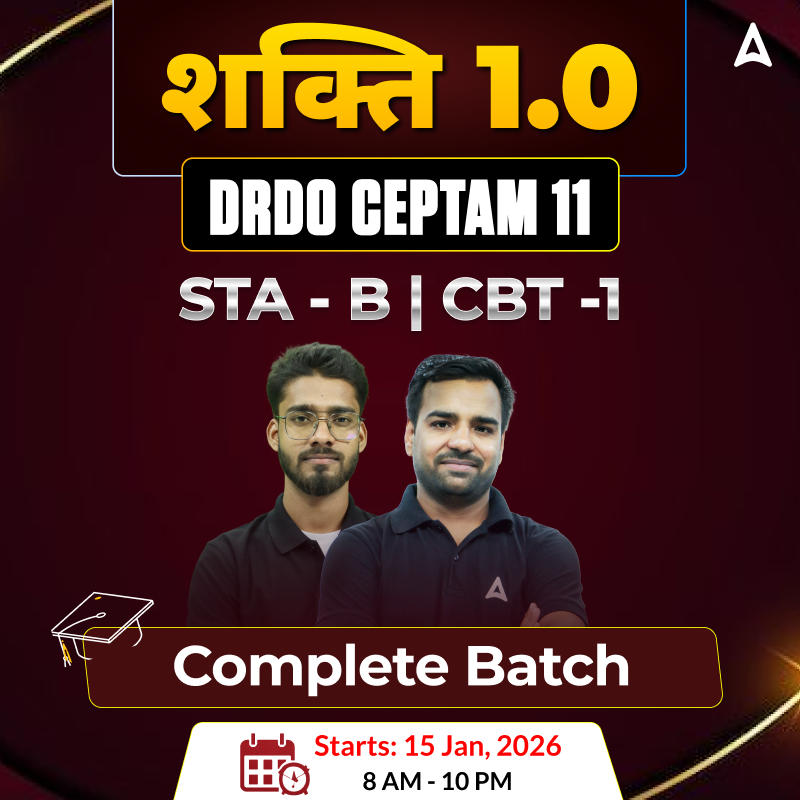DDA JE Civil Syllabus 2026
|
| Subject |
Topics |
| Building Materials |
- Physical and Chemical properties
- classification, standard tests, uses and manufacture/quarrying of materials e.g. building stones, silicate-based materials, cement (Portland), Asbestos products, Timber and Wood-based Products, laminates, bituminous materials, paints, varnishes.
|
Estimation, Costing, and Valuation
|
- estimate, glossary of technical terms, analysis of rates, methods
- unit of measurement, Items of work – earthwork, Brick work (Modular & Traditional bricks), RCC
- Shuttering, Timber work, Painting, Flooring, Plastering, Boundary wall, Brick building, WaterTank, Septic tank, Bar bending schedule, Centre line method, Mid-section formula, Trapezoidal formula, etc.
|
| Surveying |
- Principles of surveying
- working of properties, compass and bearing, plane table surveying, theodolite traverse
- adjustment of theodolite
- levelling and contouring
- curvature
- refraction
- permanent adjustment of the dumpy level
- Methods of contouring and uses of a control map
- tachymetric survey.
|
| Soil Mechanics |
- Origin of the soil phase diagram
- definitions of void ratio, porosity, degree of saturation, water content, the specific gravity of soil grains, and unit weights
- grain size distribution curves for different solids and their uses
- Atterjerg’s limits
- ISI soil classification
- plasticity chart
- coefficient of permeability, effective stress, and consolidation of soils
- Calculation of shear strength of soils, direct shear test, vane shear test, triaxial test, soil compaction
- Lab compaction, Lab compaction test
- moisture content and bearing capacity of soils, plate load test, and standard penetration test.
|
| Hydraulics |
- Fluid properties
- hydrostatics
- measurements of flow
- Bernoulli’s theorem and its application
- flow through pipes
- flow in open channels
- weirs, flumes, spillways
- pumps and turbines.
|
| Irrigation Engineering |
- Definition, necessity, benefits,
- 2II Effects of irrigation, types, and methods
- Hydrology – Measurement of rainfall, runoff coefficient, rain gauge, losses from precipitation – evaporation, infiltration, etc.
|
| Transport Engineering |
- Highway Engineering – cross-sectional elements, geometric design, types of pavements, pavement materials – aggregates and bitumen,
- different tests, Design of flexible and rigid pavements – Water Bound Macadam (WBM) and Wet Mix Macadam (WMM), Gravel Road,
- Bituminous construction, etc.
|
| Environmental Engineering |
- Quality of water
- source of water supply
- purification of water
- distribution of water
- need for sanitation
- sewerage system, circular sewers, oval sewers, sewer appurtenances
- surface water drainage
- sewage treatments.
|
| Structural Engineering |
- Theory of structures: Elasticity constants, types of beams, determinate and indeterminate, bending moment and shear force diagrams of simply supported, cantilever, and overhanging beams
- Moment of area and moment of inertia for rectangular & circular sections
- bending moment and shear stress for tee, channel, and compound sections, chimneys, dams, and retaining walls, eccentric loads
- slope deflection of simply supported and cantilever beams
- critical load and columns
- torsion of circular section.
|
| Concrete Technology |
- Properties, Advantages and uses of concrete
- cement aggregates quality
- water cement ratio, workability, mix design, storage, batching, mixing, placement, compaction, finishing and curing of concrete
- quality control of concrete
- hot weather and cold weather concreting
- repair and maintenance of the concrete structure.
|
| RCC |
- flexural strength, shear strength, bond strength
- design of single reinforced beams, lintels, cantilever beams, double reinforced beams
- one-way slabs, two-way slabs, isolated footings, reinforced brickwork
- T-beams, columns, staircases, retaining walls
- water tanks (RCC design questions may be based on both the Limit State method and the Working Stress method).
|
| Steel Design |
- Steel design and construction of steel columns, beams, roof trusses, and plate girders.
|




 RPSC Programmer Syllabus 2026, Check Com...
RPSC Programmer Syllabus 2026, Check Com...
 HPCL HRRL Syllabus 2026, Check New Exam ...
HPCL HRRL Syllabus 2026, Check New Exam ...
 BEML ITI Trainee Syllabus 2026, Check Ne...
BEML ITI Trainee Syllabus 2026, Check Ne...









